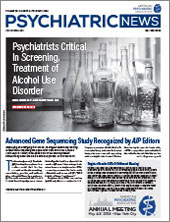President George W. Bush’s
New Freedom Commission on Mental Health reported in 2002 that the mental health systems across the country were in shambles. Many attempts to change the system in California have failed. The ballot initiative, the
Mental Health Services Act (MHSA) or millionaire’s mental health tax, passed in 2004. The MHSA imposed a state individual 1% tax surcharge on annual incomes exceeding $1 million. It sought to achieve its aims by local planning, community-based care, prevention, early intervention, and innovation primarily through the local county administration; the target were those individuals with severe mental disorders. The tax generates approximately one-third of the financing of California’s public mental health system, generating $3.8 billion in 2022.
Local and state elected officials have been stymied by an accelerating lack of affordable housing, housing shortages, homelessness, and the opioid crisis, among other obstacles. Numerous public media reports, including a
state audit in 2018, have further fueled concerns that the MHSA has not achieved its original goals. A statewide comprehensive evaluation of the MHSA did not occur. In response to the urgency of the situation, Gov. Gavin Newsom has decided to tackle both homelessness and a “shambled” mental health system by way of a politically expedient option. This option is framed in the form of a new ballot initiative,
Proposition No. 1: Behavioral Health Services Program and Bond Measure, which comprises two bills. The first is
SB 326, also known as The Behavioral Health Services Act, and the second is
AB 531, also known as The Behavioral Health Infrastructure Bond Act of 2023.
According to the governor, new challenges have emerged since the passage of the MHSA, which require a renewed vision of how to address the burdens of the behavioral health and homelessness crises in California. The announcement of this proposal was abruptly introduced in March 2023 and startled the mental health community. Nonetheless, the governor is determined to have the initiative placed on the March ballot instead of the November one—timing that historically does not favor such initiatives.
The controversies related to the proposed initiative include limiting scrutiny by the legislature and general public; limiting input by the broad community of behavioral health stakeholders, including consumers, statewide bodies, and organized psychiatry; expanding the target population to individuals with substance use disorders and veterans with behavioral health problems without commensurate tax rates; diverting funds from ongoing prevention and early intervention programs and voluntary services; shifting funding from children’s mental health services; reversing the initial decision to exclude the use of funds from locked settings; the shift from county to state oversight; deprioritizing historically underserved minoritized communities; shifting of 30% of revenue to housing intervention programs; and abrupt defunding of ongoing local programs. Similarly, the state
Legislative Analyst’s Office was dissatisfied with the rationale for restructuring the MHSA and lack of a fiscal analysis on its potential impact on current programs.
SB 326 will modernize the MHSA by expanding services to include treatment for substance use disorders, provide bridge housing, prioritize those with severe mental illness, and diversify the state oversight commission. It will shift 30% of the newly renamed fund, Behavioral Health Services Act (BHSA) Fund, to housing interventions. Expansion of 24/7 services and supports, early intervention programs, outreach, and workforce education are included, but local flexibility for use of funds will be curbed. The companion bill, AB 531, proposes 10,000 new treatment beds and supportive housing units, including acute and subacute beds, funded by establishing a $6.4 billion general obligation bond. Other housing interventions include subsidies, shared housing, and family housing options. Greater state oversight, transparency, and accountability elements are added.
The BHSA would provide the first major structural reform of the MHSA in two decades. While the debate on the effectiveness of the MHSA continues, an emerging consensus among the general public is that new strategies are desperately needed to address the overwhelming homelessness crisis and the needs of those individuals with severe behavioral health problems in California. This proposal must complement ongoing and future initiatives considering the complexity of factors strongly associated with these humanitarian crises. Additionally, it would seem prudent, should the
Yes on Proposition No. 1 campaign prevail in March, that an evaluation of this initiative by an independent entity be launched from the outset.
The favorable political forces for the “Yes on No. 1” campaign include the recently completed expedient public review, a supermajority of Democrats in the state legislature, a Democratic governor, and the waning opposition by the mental health community. Relief of suffering and recovery by those individuals who have severe mental illness and are unhoused would be a great achievement indeed. ■

